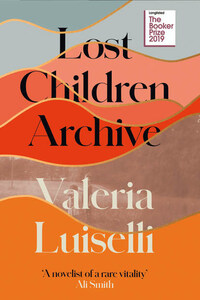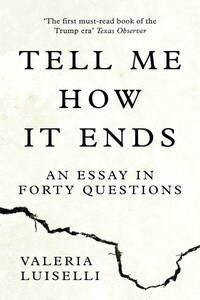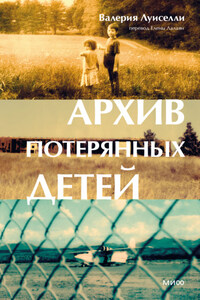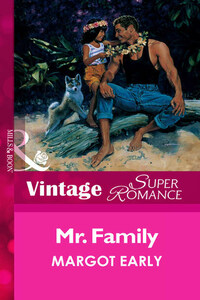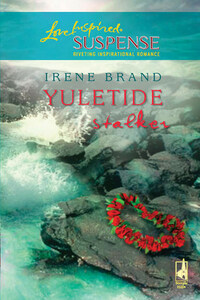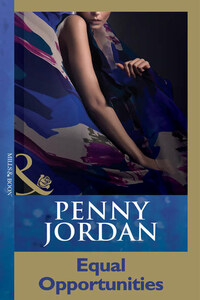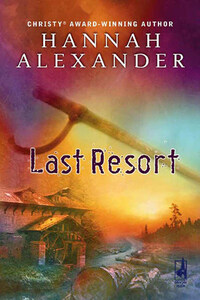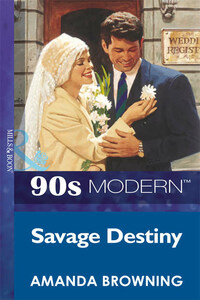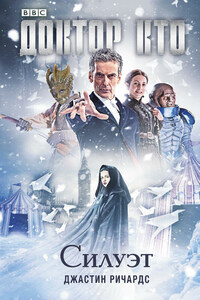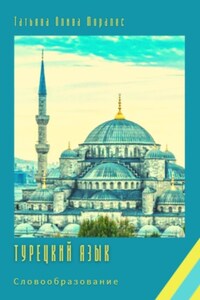4th Estate
An imprint of HarperCollinsPublishers
1 London Bridge Street
London SE1 9GF
www.4thEstate.co.uk
This eBook first published in Great Britain by 4th Estate in 2019
Copyright © Valeria Luiselli
Valeria Luiselli asserts the moral right to be identified as the author of this work
A catalogue record for this book is available from the British Library
Grateful acknowledgment is made to the following for permission to reprint previously published material:
Alfred A. Knopf, a division of Penguin Random House LLC, and Aragi, Inc.: Excerpt of “Father’s Old Blue Cardigan” from Men in the Off Hours by Anne Carson, copyright © 2000 by Anne Carson. Reprinted by permission of Alfred A. Knopf, an imprint of the Knopf Doubleday Publishing Group, a division of Penguin Random House LLC, and Aragi, Inc. All rights reserved.
Houghton Mifflin Harcourt Publishing Company: Excerpt of “Little Sleep’s Head Sprouting Hair in the Moonlight” from Collected Poems by Galway Kinnell. Copyright © 2017 by The Literary Estate of Galway Kinnell, LLC. Reprinted by permission of Houghton Mifflin Harcourt Publishing Company. All rights reserved.
International Editors’ Co., on behalf of Bárbara Jacobs and María Monterroso: “El Dinosaurio” by Augusto Monterroso, copyright © 1959 by Augusto Monterroso. Reprinted by permission of International Editors’ Co., on behalf of Bárbara Jacobs and María Monterroso.
All rights reserved under International and Pan-American Copyright Conventions. By payment of the required fees, you have been granted the non-exclusive, non-transferable right to access and read the text of this e-book on-screen. No part of this text may be reproduced, transmitted, down-loaded, decompiled, reverse engineered, or stored in or introduced into any information storage and retrieval system, in any form or by any means, whether electronic or mechanical, now known or hereinafter invented, without the express written permission of HarperCollins
Source ISBN: 9780008290023
Ebook Edition © February 2019 ISBN: 9780008290030
Version: 2019-01-09
Contents
Cover
Title Page
Copyright
Dedication
PART I: FAMILY SOUNDSCAPE
Relocations
Box I
Routes & Roots
Box II
Undocumented
Box III
Missing
Box IV
Removals
PART II: REENACTMENT
Deportations
Maps & Boxes
Box V
Continental Divide
Lost
PART III: APACHERIA
Dust Valleys
Heart of Light
Echo Canyon
PART IV: LOST CHILDREN ARCHIVE
Box VI
Document
Box VII
Works Cited
Illustration Credits
Acknowledgments
About the Author
Also by Valeria Luiselli
About the Publisher
An archive presupposes an archivist, a hand that collects and classifies.
—ARLETTE FARGE
To leave is to die a little.
To arrive is never to arrive.
—MIGRANT PRAYER
DEPARTURE
Mouths open to the sun, they sleep. Boy and girl, foreheads pearled with sweat, cheeks red and streaked white with dry spit. They occupy the entire space in the back of the car, spread out, limbs offering, heavy and placid. From the copilot seat, I glance back to check on them every so often, then turn around again to study the map. We advance in the slow lava of traffic toward the city limits, across the GW Bridge, and merge onto the interstate. An airplane passes above us and leaves a straight long scar on the palate of the cloudless sky. Behind the wheel, my husband adjusts his hat, dries his forehead with the back of his hand.
FAMILY LEXICON
I don’t know what my husband and I will say to each of our children one day. I’m not sure which parts of our story we might each choose to pluck and edit out for them, and which ones we’ll shuffle around and insert back in to produce a final version—even though plucking, shuffling, and editing sounds is probably the best summary of what my husband and I do for a living. But the children will ask, because ask is what children do. And we’ll need to tell them a beginning, a middle, and an end. We’ll need to give them an answer, tell them a proper story.
The boy turned ten yesterday, just one day before we left New York. We got him good presents. He had specifically said:
No toys.
The girl is five, and for some weeks has been asking, insistently:
When do I turn six?
No matter our answer, she’ll find it unsatisfactory. So we usually say something ambiguous, like:
Soon.
In a few months.
Before you know it.
The girl is my daughter and the boy is my husband’s son. I’m a biological mother to one, a stepmother to the other, and a de facto mother in general to both of them. My husband is a father and a stepfather, to each one respectively, but also just a father. The girl and boy are therefore: step-sister, son, stepdaughter, daughter, step-brother, sister, stepson, brother. And because hyphenations and petty nuances complicate the sentences of everyday grammar—the us, the them, the our, the your—as soon as we started living together, when the boy was almost six and the girl still a toddler, we adopted the much simpler possessive adjective our to refer to them two. They became: our children. And sometimes: the boy, the girl. Quickly, the two of them learned the rules of our private grammar, and adopted the generic nouns Mama and Papa, or sometimes simply Ma and Pa. And until now at least, our family lexicon defined the scope and limits of our shared world.
